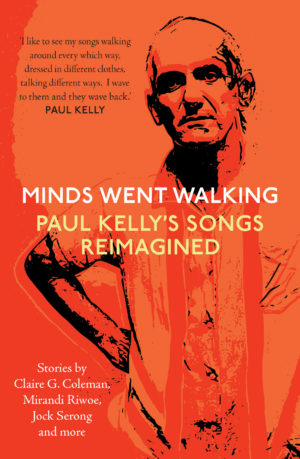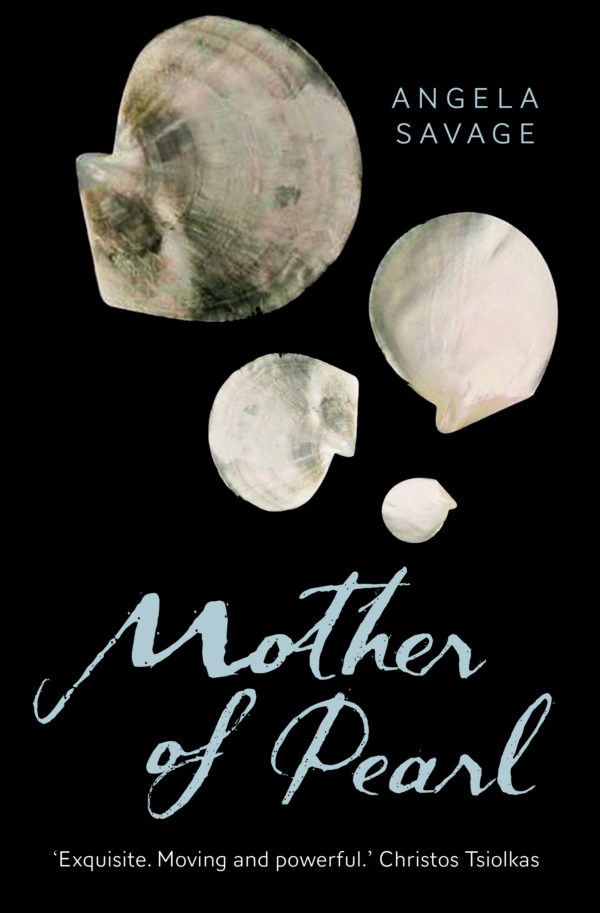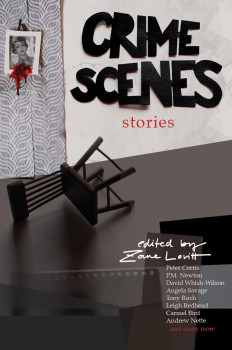 It’s my pleasure to welcome to this blog YA crime writer Ellie Marney. Ellie’s debut novel, Every Breath, garnered terrific reviews when it was released in 2013, and will be published in Canada and the US later this year. The sequel, Every Word, has just been released and in my opinion, it’s a worth successor to her excellent debut. Ellie has done me the honour of asking me to launch Every Word at Readings Carlton on Thursday 12 June at 6.30pm (RSVP on Facebook here).
It’s my pleasure to welcome to this blog YA crime writer Ellie Marney. Ellie’s debut novel, Every Breath, garnered terrific reviews when it was released in 2013, and will be published in Canada and the US later this year. The sequel, Every Word, has just been released and in my opinion, it’s a worth successor to her excellent debut. Ellie has done me the honour of asking me to launch Every Word at Readings Carlton on Thursday 12 June at 6.30pm (RSVP on Facebook here).
Ellie also interviewed me recently for her blog, Hick Chick Click. Now I’m returning the favour in the lead up to the launch of Every Word. Welcome Ellie.
Hi, Angela! Thanks for having me over.
Congratulations on the success of Every Breath and the launch of Every Word, the first two books in your trilogy featuring Rachel Watts and James Mycroft.
Thank you! I was over the moon when Every Breath was longlisted for a Gold Inky Award, and I’m looking forward to the launch of the second book. It wasn’t something I ever let myself think was possible, but seeing the books on the shelves makes it real!
The Every series has all the hallmarks of a great yarn: a brilliant, handsome male hero with a tragic past (shades of Harry Potter?); a feisty female hero with street smarts and her own type of cleverness to match Mycroft’s intellectual genius; puzzling cases; evocative locations. What – or who – was the inspiration for the series?
The first idea for the novel was the old ‘What if?’ question that I think most writers (and readers too) pose for themselves – so What if Sherlock Holmes was a contemporary teenager? What would he be like? Following on from that were the inevitable questions about who would make a good Watson, and how to put it all together in an Australian context, because I knew I wanted an Australian setting. I still have the big sheets of yellow notepad paper where I scribbled down all the initial ideas I developed while brainstorming, and it’s remarkable how many of those jotted notes made it into the final draft.
Mycroft says he wants to be ‘Sherlock-bloody-Holmes’. Rachel tells him. ‘You’re Mycroft, the much-smarter brother, remember?’ Tell us about the relationships between Mycroft Holmes and James Mycroft.
I wanted James Mycroft to be Sherlock-associated – in his own mind, as well – but I didn’t want to lumber him with Sherlock’s name, as I thought that was a bit heavy-handed. He’s not really a Sherlock imitation; although he bears some similarities, he’s much more personable and erratic than the Sherlock we know in canon, and he’s actually quite aware of the fact that he’s his own person. So I gave him the name of Sherlock’s brother, who reveals himself very little in the original Conan Doyle stories, and in whom I felt there was a bit more latitude for creating something new.
Later, in Every Word and the third book, Every Move, I’ve drawn in threads about Mycroft being caught up in a mystery within the UK intelligence service, which is a nod to the original Mycroft Holmes: he is described by Conan Doyle’s Sherlock as working for the government as a kind of one-man walking brains trust.
Rachel Watts is no Watson, not a sidekick but a main character in her own right. You’ve said Rachel is inevitably ‘a little bit’ like you. I’d suggest she’s a lot like you. In fact, I had you in mind the whole time I was reading the books. I think it was the copious references to flannie shirts! So, how is Rachel like you and also different from you? Is there also a little bit of you in Mycroft?
Well, I don’t know what to say! Oh god, I hope I haven’t written a total Mary Sue!
But I admit that yes, Rachel is a lot like me, particularly with the flannie shirts. She’s a country girl, I was (still am) a country girl; she’s quite pragmatic, which I tend to be, and extremely stubborn, which my partner tells me is a trait I share! She also has a fairly laissez-faire attitude to clothes and primping, which I can certainly identify with. Last count, I only owned two pairs of shoes, work boots and good boots (plus my ugg boots, of course), and I spend most of my life in jeans.
But Rachel is a seventeen-year old high school girl living in North Coburg, and I’m a forty-three-year old mother of four living in the bush, so clearly there’s a few differences as well! Rachel loved her isolated country life – I was all ready to bust out of the country when I was a kid (although I love it now I’m older). She also has a fairly narrow view of the world, which expands a bit in Every Word, when she impulsively hops on a plane to follow Mycroft to England – I lived overseas, so I understand her confusion and fear at that first flight, but I loved living away, and in fact I did it for many years. Rachel also has qualities I don’t possess at all – I get pretty awful vertigo, so I could never get up onto scaffolding the way she does in Every Breath, and I’m not mechanically-minded, so I would have no idea how to fix our water pump (that is actually a talent I wished I possessed).
Mycroft and I share a love of strong tea with condensed milk, an eclectic taste in music – The Black Keys is also one of my favourite bands – and a rather black sense of humour. And maybe a shared interest in all things forensic J
Every Breath is set in Melbourne’s inner north – my local neighbourhood, in fact – and you do a great job of evoking the environment. I’ve never been able to look at certain parts of Melbourne Zoo the same way since reading Every Breath. What makes Melbourne a great place to set a crime novel?
Oh, Melbourne is fantastic for a crime novel! It has its flashy, modern-architecture side, but also streets of cobblestones and Victorian-looking alleyways, alongside suburban lawns and grungy commission flats. And the multi-cultural aspect of Melbourne makes every area different, layered. So I guess it’s the diversity of the inhabitants and the setting in Melbourne that allow a great variety of possibilities. And of course, the weather is very noir!
Why move the action in Every Word to London? (As someone who is always looking for opportunities for tax deductible travel to exotic locations, I totally understand if that was your motive…)
You know, it’s a kind of dumb thing that I did completely without thinking. At that stage, I had no green light for a sequel, so it was all speculative until I got about a quarter of the way in. And by that time I’d already settled on Every Word being about Mycroft’s past, and his family’s tragic history, so I knew we’d have to go back to the place that made him who he was. I have to say I was relieved when Allen & Unwin okayed a sequel – and then I realised that to write a location effectively, it’s actually kind of important to know what you’re talking about.
I’d never been to Europe or the UK, and the descriptions I was writing just seemed a bit hollow, a bit cookie-cutter, you know? They didn’t feel real. That’s when my partner suggested I go to London, to do research: it felt like something that would be crazy to consider until it actually happened. We had ten days of scouring London for murder locations in the freezing November cold, and touring the Westminster Mortuary, and interviewing folk at the Bodleian Library in Oxford – quite incredible. Now my partner keeps suggesting that I write a new book set in, like, Hawaii.
The Young Adult (YA) market is an interesting one, attracting children – who tend to read above their age – as well as adults (including me) who just like a well-written book. What made you decide to write a YA novel in particular?
I love Young Adult literature – it’s simple as that, really. About ninety-five percent of my reading is within YA, and it’s not just because I’m trying to stay current, although that’s a handy by-product. I’ve been reading YA since high school, and I just never gave it up. I’m still not sure why YA is considered to be ‘just for kids’! I find a level of sophistication and subtlety in some YA books that rivals anything I’ve ever read in a book for adults – if you’ve read The Fault in Our Stars by John Green, or This is Shyness by Leanne Hall, or Graffiti Moon by Cath Crowley, or Wild Awake by Hilary Smith, you’ll understand what I’m talking about.
YA readers appreciate beautiful language and well-crafted prose, but they really love story. YA books tend to gather momentum, plot-wise, in a way that many adult literature books don’t. I find it energising as a writer, to be character-driven, but also be able to incorporate striking plot elements – and the readers out there are pushing you to avoid being formulaic in those plot elements. It’s a challenge, and it’s fun, and there’s something about it I find mesmerising and refreshing.
Is there a difference in how younger readers and adult readers respond to your books?
Yes – teenaged readers are very drawn to the characters, and will heart them ferociously on social media! I love that about them. My job as a writer is to create an emotional response, so if the readers tell me they are completely in love with Mycroft, or they totally identified with Rachel, then yay – my job here is done!
Adult readers won’t wear their hearts on their sleeves quite so much, generally, but sometimes I see the twinkle in their eye! Adult readers are more likely to enjoy the language and location, and ask me about writing the forensic details. And a number of friends who read Every Breath commented that it was the first time they’d read a YA book, and how surprised they were at how much they enjoyed it!
Your novels are real page-turners, Ellie. You do a brilliant job of building suspense and you write explosive climaxes (pun intended for those who’ve read Every Word). Are these skills you’ve studied, learned on the job and/or gleaned from reading other writers?
Thank you! That’s quite a compliment from another crime writer! I think I learned everything I know about writing from reading other people’s books. If I’m ever stuck on a scene or aspect of a book, I usually go back to reading through other people’s work, to see how (or if) it’s been tackled before. Then I can make a decision about how to tackle it effectively, and with variety.
Of course I’ve read some books on writing – Stein is probably my favourite – and I had a wonderful mentor with my first book, PD Martin, who taught a Popular Fiction course I participated in while writing the first draft of Every Breath. But I learn more from reading, I think. For those explosive action scenes, I tend to go back to people who do them well – Suzanne Collins’s book, The Hunger Games, was something I kept returning to. She uses short, sharp sentences interspersed with longer stream-of-consciousness-type sentences to great effect. Stephen King is wonderful too.
On the subject of other writers, who are your favourite crime authors, and why?
The Silence of the Lambs by Thomas Harris is a book that I keep returning to again and again. I have a very well-thumbed hardback copy. The character development in that book is extraordinary. I haven’t found many books that top it, as a procedural thriller. I actually think Harris himself has struggled to match it later in his career. His earlier book, Red Dragon, showed the fine early promise, but nothing has beaten Silence before or since. I find it hilarious that Silence, once considered ‘pulp’ – like the work of other popular authors, including Stephen King – has now been graciously accorded space in the hallowed halls of ‘Big-L’ literature. They even examined Silence on The Book Show on the ABC recently – that cracked me up.
I’m also quite taken with Peter Temple – his book Truth is just radiant. He has a fantastic black sense of humour, unerring dialogue (the dialogue!), and the Melbourne setting is transformed in his stories. My favourite female crime (or really, psychological thriller) author is Honey Brown. She has that same ear for dialogue, beautiful beautiful language, and awareness of people’s mental processes. With her novels, you are always disturbed by the tension of what’s circling just below the thin black surface.
My partner tells me I should read more widely – I’ve never read Ruth Rendell, for instance, and I’m determined to give it a try. I enjoy Åsa Larsson’s novels too, and have vowed to read more Swedish crime.
Finally, can you give us a sneak preview of what’s in store for Watts and Mycroft in their next outing?
Every Move is the third and final instalment (that I know of, hah!) in the series. In Every Word, we examined Mycroft’s past, and in the third book, I wanted to go back to Rachel’s roots. So plot threads that were first exposed in Every Word will be ravelled together for a jam-packed finale involving Rachel’s old life in Every Move. Some of the brainstormed ideas I had for the third book were: nemesis, revenge, country people/country skills, old flame, alone together, Final Problem… I hope that helps!
Thanks Ellie. And here’s wishing you every success with Every Word.
Thanks Angela – for the great questions, and also for helping me release my book into the wild! See you Thursday!
Every Breath by Ellie Marney (2014) is published by Allen & Unwin.
Launch details here.







Hello to both of you – great interview! I think it’s true that ‘What if…’ is an important first question that writers ask. And I couldn’t agree more about both Temple and Larsson as crime writers. Both very talented. Oh, and one more thing: I give credit to anyone who writes books that make young people want to read. Well done!
LikeLike
Margot, Ellie’s books are great reads for grown ups, too. I think you’d really enjoy them – and appreciate the references to Conan Doyle’s famous detective hero.
LikeLike
Pingback: Australian Women Writers Challenge 2014 wrap-up | Angela Savage